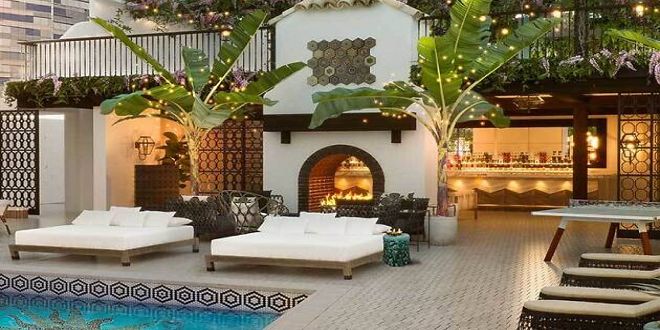Sydney is a city with over 20,000 hotel rooms. Over 17% of the city’s hotels are luxury establishments. The most prestigious hotel chains have been recognised worldwide for decades for their elegance and prestige. However, there has been a proliferation of boutique hotels in Sydney, each offering a delightfully fresh twist on the traditional concepts of hospitality and lodging. These creative settings have naturally piqued the interest due to their one-of-a-kind character. Have you ever enjoyed a vacation at a boutique hotel in Sydney? If you haven’t tried a boutique hotel yet, you should try something new and use these suggestions to choose the ideal one.
What’s a Boutique Hotel?
It’s difficult to pinpoint exactly what a “boutique hotel” is. Boutique hotels can be any size; there is no set number of rooms that defines them as such. What kind of accommodations do you visualise when someone says “boutique hotel?” A high-end resort with sumptuous furnishings, elaborate moulding, a spa, and a price tag to match? The first thing about considering a boutique hotel’s price is usually the hotel’s high cost. However, in practice, they often offer better value for money than name-brand hotels.
In general, boutique hotels are substantially smaller than their chain counterparts. This category of hotels, which often has fewer than 100 rooms, is often seen as chic establishments that provide a more customised and individual stay for each guest. They are most commonly found in trendy urban areas but can also be found in any city or hamlet.
Boutique hotels are likely to vary greatly from one another in terms of both decor and the range of services and perks they provide. Spas and gift shops are common in boutique hotels, but you can also find trendy hair salons and coffee shops. Guests of a boutique hotel in Sydney will have a one-of-a-kind experience, giving them something to talk about once they get home. They make it possible for visitors to fully integrate into a neighbourhood.
What Makes Boutique Hotels So Special Compared to the Rest?
There is some similarity between a boutique hotel in Sydney and larger hotel chains, but there are also some key aspects in which they differ.
Location
Boutique hotels are often found in more upscale neighbourhoods, as opposed to the more practical locations chosen by chain hotels and larger buildings (such as on a major highway or a cluster of fast food restaurants). Boutique hotels typically boast an Instagram-worthy design and a hip position in a city’s central business district.
Size
Boutique hotels generally have less than 100 rooms, creating a more personal and intimate stay for their guests. Due to their smaller size, many boutique hotels also include public areas for guests to congregate.
Services
Services at hotel chains are typically consistent between properties. For instance, all guests at a certain boutique hotel can make use of the 24-hour coffee service and complimentary cooked breakfast. In some limited-service hotels, breakfast could be served to order or limited to a continental spread. There are both freshwater and saltwater swimming pools available at several hotel chains. On the other hand, boutique hotels provide amenities, some of which may be site-specific.
Decorations and Layouts
Unique in design, boutique hotels are a special kind of accommodation. Some may go for a more country look, while others may be built with relaxation in mind, complete with calming plants, a meditation space, and other holistic amenities in the lobby. Interiors in boutique hotels are always unique.
In Conclusion
The best boutique hotels usually provide guests with access and information that is specific to the area in which the hotel is located. They also provide guests with several services and experiences. With their unique charm and character, boutique hotels merit a visit all on their own.





